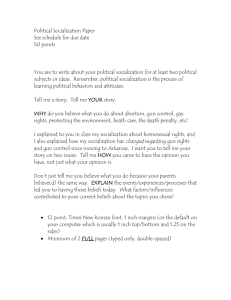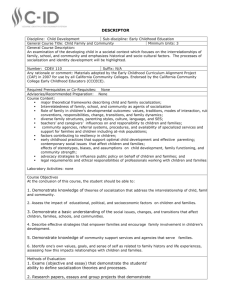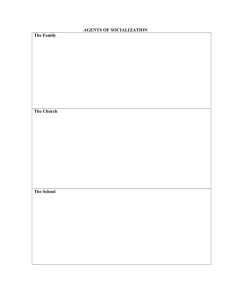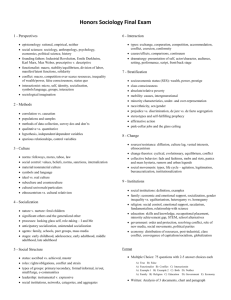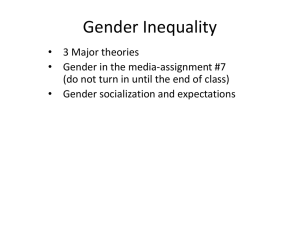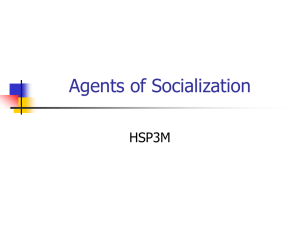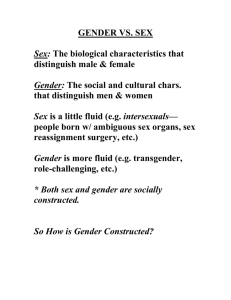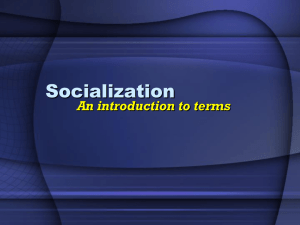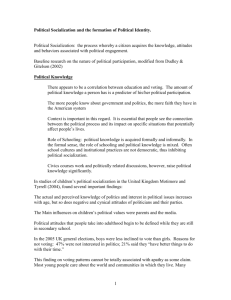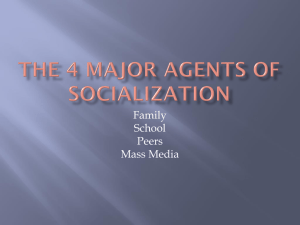Administrative Culture: Socialization and Motivation
advertisement
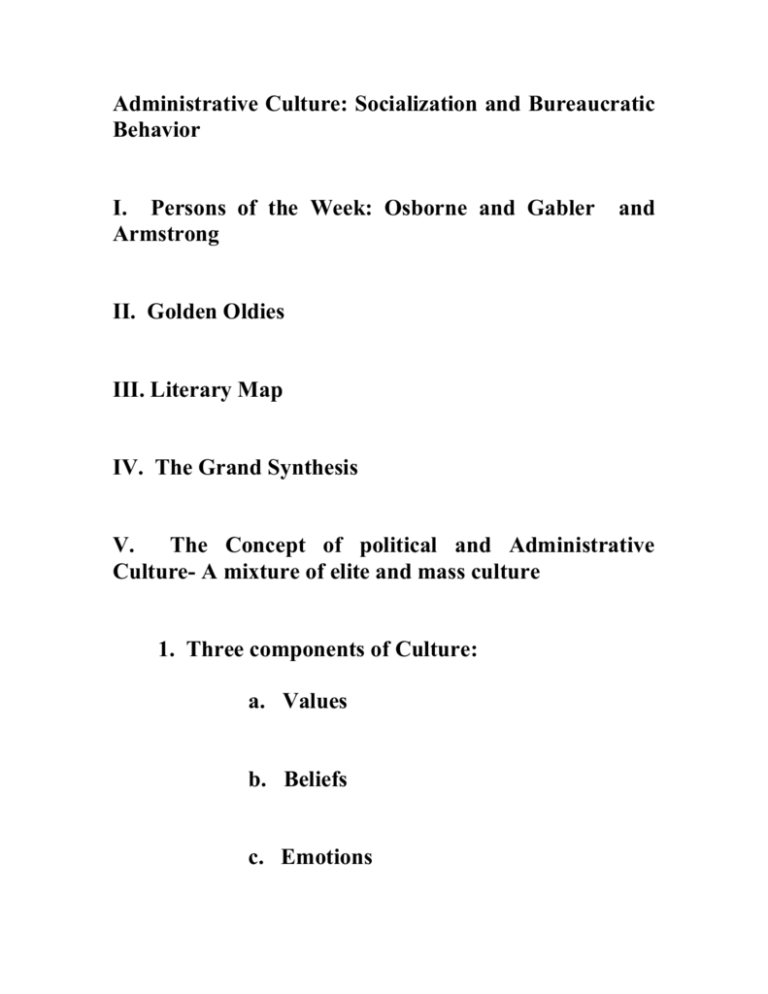
Administrative Culture: Socialization and Bureaucratic Behavior I. Persons of the Week: Osborne and Gabler Armstrong and II. Golden Oldies III. Literary Map IV. The Grand Synthesis V. The Concept of political and Administrative Culture- A mixture of elite and mass culture 1. Three components of Culture: a. Values b. Beliefs c. Emotions 2. Thesis- These can predict political behavior 3. Culture limits the action of citizens and administrators, channels demands and excludes certain possible policy options 4. The Concept: a. People are tied to a unique web of historical experiences b. Assumption: From the general culture one can extract out the salient aspects of that culture that relate to political behavior and administrative traditions c. Organizational Culture is a sub-set of broader cultural assumptions d. In looking for evidence of a political or an administrative culture we are looking for a set of representative values for the people of that society 1. Many cultures: regional, administrative, ethnic, professional, etc. including hierarchy of values 2. These are effected by historical origin, race, gender, education, region, etc. d. Three dimensions of Culture: 1. Cognitive Dimension- What people know. a. The set of historical and cultural information to which any native of the society is automatically tuned in b. All societies have their peculiarities which are part of their political culture 2. The Evaluative Dimension- Not the is but the what ought to be a. What is good and bad b. U.S.- Military service good, welfare cheaters bad 3. The Emotive Dimension- The emotional attachment that people have to their political system a. Symbolism and myth, anthems and flags b. Provides the strength of values c. Nationalism- “My country right or wrong” VI. Socialization 1. Process by which political attitudes are formed and maintained 2. Acquisition of values, beliefs, and knowledge about the political system on both the individual and community level 3. Cultural transmission across generationsthe introduction of new generations to the beliefs and values of the old 4. Can be a conscious or an unconscious effort- as to how attitudes towards policy are formed a. Issue of Cultural EngineeringIdeological and explicit =Revolutionary and Developmental Societies =Ideological and explicit b. U.S. and Western Europe- mostly indirect (Instrumental and implicit) =often hidden within a pragmatic, fairly loose value system 5. Socialization: Mass vs. elite (vs. Organizational) socialization a. Primary- Most important: occurs within the family b. Secondary- Everything else before adulthood, school, peers, national and regional- it is here that cultural engineering occurs c. TertiaryProfessional and OrganizationalBegins with University. Issue how specialization of bureaucratic elites is related to socialization and education 6. Things Learned: evaluative or emotional May be cognitive, a. Vague Patriotic image- eg. U.S. paternal- President as "super-friend" and father image (shattered by Watergate and post-Watergate- See Woodward Book Shadows) b. Societal and community definitions c. Personal identification with government Discussion: John Administrative Elite Armstrong- The European Asynchronous Comparison Status, Role Theory and Counter-Roles Socialization and the Diffusion of Development Doctrines The Prefect as Territorial Administrator and role in Development Intervention. VII. Assumption: Political, Administrative Culture and Socialization have a major impact on organizational behavior. VIII. Values and Motivation 1. Theory X vs. Theory Y 2. Maslov’s Hierarchy: Basic needs, social needs and ego needs 3. Application of Theories of Motivation outside the U.S. Case Study (China, Korea, South Africa and Brazil) 4. The Special problem of Collapsed states.

